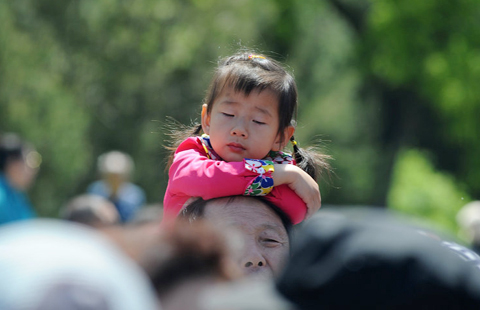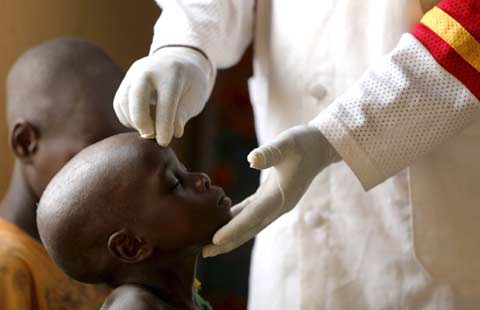Midwife shortage may grow crucial
Updated: 2015-05-06 07:14
By WANG XIAODONG(China Daily)
|
||||||||
Many college students who are about to graduate are still struggling to find work, but almost all the 58 students majoring in midwifery at Southern Medical University in Guangzhou, Guangdong province, have already landed well-paid jobs at respected hospitals.
"Most of them have already completed internships at big hospitals across China, including ones in Guangzhou, Beijing and Shanghai," said Cai Wenzhi, deputy dean of the university's nursing school. "Only several gave up looking for jobs for reasons such as wishing to continue their studies."
The midwifery students, who enrolled in 2011, will be the first group of students majoring in midwifery to receive bachelor's degrees at the university.
China faces a severe shortage of midwives, a situation exacerbated by the loosening of the family planning policy in recent years. This is expected to result in 2 million more babies being born annually over the coming years, and there is an urgent need to train more midwives, experts said on Tuesday, the International Day of the Midwife.
On average, only three midwives are available for every 100,000 people in China, said Pang Ruyan, vice-chairwoman of the China Maternal and Child Health Care Association. The figure is 70 in Sweden and 45 in the Philippines, she said.
The shortage may become worse in the coming years, due to a policy adopted by the central government in late 2013 that allows couples to have a second child if at least one of the two has no sibling, Pang said.
Zhang Wenkang, the association's chairman and a former health minister, said, "The supply of midwives in the country falls far short of demand in terms of both quantity and quality."
Zhang was speaking on Tuesday at an international forum on midwifery development hosted by the association and the United Nations Fund for Population Activities in Hangzhou, Zhejiang province.
China lacks a national midwifery education system, and there is no special training targeted at midwives. This has made the profession less attractive to many people, Pang said.
The shortage of skilled midwives is a major reason for the country's high rate of cesarean sections. The rate is almost 50 percent, one of the highest in the world, Pang said.
The National Health and Family Planning Commission started a pilot program last year to train midwifery majors at eight universities, including Southern Medical University and Fudan University.

 Met Museum celebrates China with annual gala
Met Museum celebrates China with annual gala
 Ten photos you don't wanna miss - May 5
Ten photos you don't wanna miss - May 5
 Tree house hotel in Jinan
Tree house hotel in Jinan
 Six reasons stopping Apple Watch from ticking in China
Six reasons stopping Apple Watch from ticking in China
 Historical photos of 56 nations in China (Part I)
Historical photos of 56 nations in China (Part I)
 World No.1 Ma wins first men's singles world championship
World No.1 Ma wins first men's singles world championship
 Ten photos you don't wanna miss during May Day holiday
Ten photos you don't wanna miss during May Day holiday
 The world in photos: April 27 - May 3
The world in photos: April 27 - May 3
Most Viewed
Editor's Picks

|

|

|

|

|

|
Today's Top News
China Daily's website takes top spot in readership
Xi will honor soldiers during Russia trip
China reforms can benefit
US: experts
Shanghai bans families of govt officials from owning firms
Chinese companies demonstrate presence at OTC
Most Americans believe US wealth distribution unfair: poll
Xi, Eric Chu
stress shared destiny
New leaders take reins at oil giants
US Weekly

|

|






